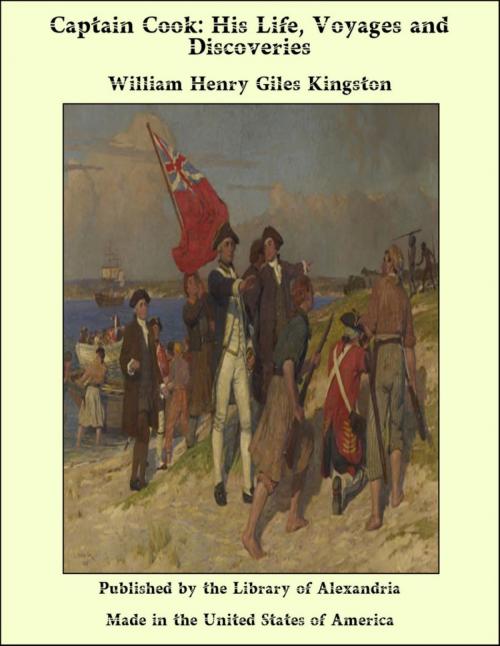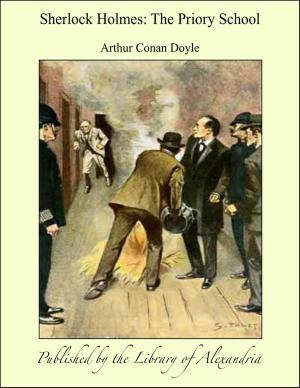Captain Cook: His Life, Voyages and Discoveries
Nonfiction, Religion & Spirituality, New Age, History, Fiction & Literature| Author: | William Henry Giles Kingston | ISBN: | 9781465596253 |
| Publisher: | Library of Alexandria | Publication: | March 8, 2015 |
| Imprint: | Language: | English |
| Author: | William Henry Giles Kingston |
| ISBN: | 9781465596253 |
| Publisher: | Library of Alexandria |
| Publication: | March 8, 2015 |
| Imprint: | |
| Language: | English |
Among all those Englishmen who, from a humble origin, have risen to an honourable position, Captain James Cook is especially worthy of record. His parents were of the peasant class—his father having commenced life as a farm-labourer, and his mother being a cottager’s daughter. Probably, however, they were both superior to others of the same station, as the husband, in process of time, became farm-bailiff to his employer—a Mr Thomas Skottowe. This was about the year 1730, and the farm of which he had the management was called Airy-Holme, near Ayton, in Yorkshire. Not far from this place, at the village of Marton, near Stockton-upon-Tees; his son James was born, on October 27, 1728. James was one of nine children, all of whom he survived, with the exception of a sister who married a fisherman at Redcar. The father of this family spent the latter years of his life with his daughter at Redcar, and was supposed to have been about eighty-five years old at the time of his death; so that he must have had the satisfaction of seeing his son rising in his profession, though probably he little thought of that son as establishing a fame which would be handed down in history. James Cook does not appear to have enjoyed any peculiar educational advantages, but owed his subsequent advancement chiefly to his own intelligence, perseverance, and diligence. He first went to a village school, and was afterwards sent, at the expense of Mr Skottowe, to an ordinary commercial school, kept by a Mr Pullen. He continued there four years, and was then apprenticed to Mr William Sanderson, a grocer and haberdasher at the fishing town of Straiths, ten miles from Whitby. It may be supposed that the occupation in which he was engaged was not suited to his taste. The sea was constantly before his eyes, and the desire to seek his fortune on it sprang up within him, and grew stronger and stronger, till in about a year after he went to Straiths he obtained a release from his engagement with Mr Sanderson, and apprenticed himself to Messrs Walker and Company, shipowners of Whitby.
Among all those Englishmen who, from a humble origin, have risen to an honourable position, Captain James Cook is especially worthy of record. His parents were of the peasant class—his father having commenced life as a farm-labourer, and his mother being a cottager’s daughter. Probably, however, they were both superior to others of the same station, as the husband, in process of time, became farm-bailiff to his employer—a Mr Thomas Skottowe. This was about the year 1730, and the farm of which he had the management was called Airy-Holme, near Ayton, in Yorkshire. Not far from this place, at the village of Marton, near Stockton-upon-Tees; his son James was born, on October 27, 1728. James was one of nine children, all of whom he survived, with the exception of a sister who married a fisherman at Redcar. The father of this family spent the latter years of his life with his daughter at Redcar, and was supposed to have been about eighty-five years old at the time of his death; so that he must have had the satisfaction of seeing his son rising in his profession, though probably he little thought of that son as establishing a fame which would be handed down in history. James Cook does not appear to have enjoyed any peculiar educational advantages, but owed his subsequent advancement chiefly to his own intelligence, perseverance, and diligence. He first went to a village school, and was afterwards sent, at the expense of Mr Skottowe, to an ordinary commercial school, kept by a Mr Pullen. He continued there four years, and was then apprenticed to Mr William Sanderson, a grocer and haberdasher at the fishing town of Straiths, ten miles from Whitby. It may be supposed that the occupation in which he was engaged was not suited to his taste. The sea was constantly before his eyes, and the desire to seek his fortune on it sprang up within him, and grew stronger and stronger, till in about a year after he went to Straiths he obtained a release from his engagement with Mr Sanderson, and apprenticed himself to Messrs Walker and Company, shipowners of Whitby.















